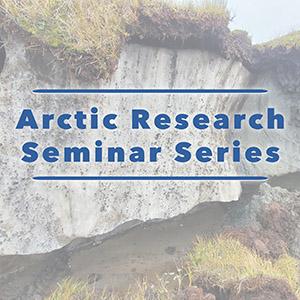Speakers: Cana Uluak Itchuaqiyaq, Iñupiaq scholar, Virginia Tech, and Corina Qaaġraq Kramer, Director of Operations at Aqqaluk Trust
ARCUS invites registration for the next Arctic Research Seminar featuring Cana Uluak Itchuaqiyaq, Iñupiaq scholar, Virginia Tech, titled "Getting Started with Equitable Arctic Research at Any Stage of Your Project: Tips from an Inuit Arctic Scholar". The seminar will be held via Zoom.
Registration is required for this event. Instructions for accessing the webinar will be sent to registrants prior to the event.
Seminar Abstract
Join Corina Qaaġraq Kramer and Cana Uluak Itchuaqiyaq, Iñupiaq sister-collaborators from Kotzebue, Alaska, as they delve into three crucial elements of equitable Arctic research. In their presentation, they will explore practical strategies that can be applied to your work prior to, during, and after conducting research in collaboration with Arctic Indigenous communities. Drawing upon the valuable insights outlined in their recently published handbook, Equitable Arctic Research: A Guide for Innovation, Corina and Cana will demonstrate the ongoing relevance of equity throughout the research process. By embracing these strategies, you will be empowered to foster innovative and sustainable projects, while cultivating meaningful relationships with the Arctic Indigenous communities you collaborate with.
Speaker Bios
Cana Uluak Itchuaqiyaq is an Iñupiaq scholar activist dedicated to equitable Arctic research and amplifying the voices of underrepresented communities. Cana is an assistant professor of professional & technical writing at Virginia Tech. Her interdisciplinary research combines expertise in the humanities and environmental sciences to develop culturally appropriate and capacity-driven science communication. Cana serves on various boards and committees. She is the non-federal lead of the Interagency Arctic Research Policy Committee's (IARPC) Participatory Research and Indigenous Leadership in Research (PILR) team and serves on the Board of Directors for the Arctic Research Consortium of the United States (ARCUS).
Corina Qaaġraq Kramer is an Iñupiaq community leader and advocate for Indigenous culture and youth. Corina is the Director of Operations for Aqqaluk Trust in Kotzebue, Alaska, where she develops regional, state, and national partnerships for language and culture work. With over 15 years of experience in village outreach, organization, and collaboration, and 25 years of youth leadership and mentorship, Corina is a determined, self-educated, well-connected, and strong leader who brings people together to make positive change. Corina serves as a Siamit Faculty member and the Della Keats Fellowship Community Director at the Harvard Center for Global Health Delivery.

